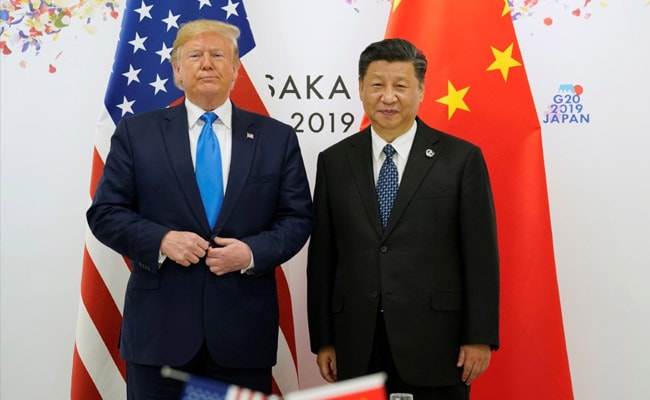
India’s manufacturing industry is bearing the brunt of the rift between the United States and China over trade and tariff war threats by the incoming Trump administration and retaliatory measures imposed by Beijing.
In recent years, under its flagship ‘Make in India’ programme, India has seen rapid growth in key sectors such as solar energy, electronics and mobile manufacturing and the automobile sector, especially electric vehicles or EVs – all of which are directly or Are indirectly dependent on raw materials, components and accessories supplied by China.
As China prepares for an imminent confrontation with the US, which could be just days away with Donald Trump’s return as President on January 20, Beijing has already taken some precautionary measures as a warning to Washington. He has taken the first step that he will also do the same. Will have to face trade war.
China has banned the export of key raw materials, essential rare earth minerals, components, high-tech equipment and machinery used to manufacture solar panels, its parts, mobile phones and other gadgets as well as EVs and its batteries. are necessary. ,
These restrictions relate not only to direct exports to the United States, but also to any other country that uses them to manufacture finished products to be shipped to the US.
In December 2024, China banned exports of gallium and germanium, which are crucial for solar cell production. Soon after, it also banned semiconductors and antimony critical to essential defense technologies. Earlier this month, Beijing further announced that it would now add lithium extraction and battery cathode technologies – which are critical to EV battery manufacturing – to its controlled export list.
As the US has reduced its reliance on China for a larger share of its total imports, Washington has turned to New Delhi in recent years as an alternative to Beijing to offset the deficit. And so, China’s latest sanctions, though targeted at the US, indirectly hurt India as well.
“Indian companies in the electronics, solar and EV sectors are facing major delays and disruption as China has blocked exports of inputs and machinery,” said Ajay Srivastava, founder of economic think-tank GTRI. “India is particularly sensitive to China’s export restrictions,” he said. Because many of its industries depend on Chinese machinery, intermediate goods and components.”
“It also signals deeper geopolitical tensions and a trade war. We hope India-specific sanctions go away soon as they will hurt China too,” he said.
India’s imports from China to increase from $98.5 billion in 2022-23 to $101.73 billion in 2023-24.
The think-tank even suggested that China’s moves could be double-edged, as Beijing has for some time been angered by New Delhi’s restrictions on Chinese investment and visas for its citizens.
In 2020, soon after the deadly Galwan Valley clash between Indian and Chinese troops in eastern Ladakh, the Indian government made it mandatory for countries sharing land borders with India to seek its approval for investment in any sector. The move was also taken keeping in mind national security objectives in India’s volatile neighbourhood.



